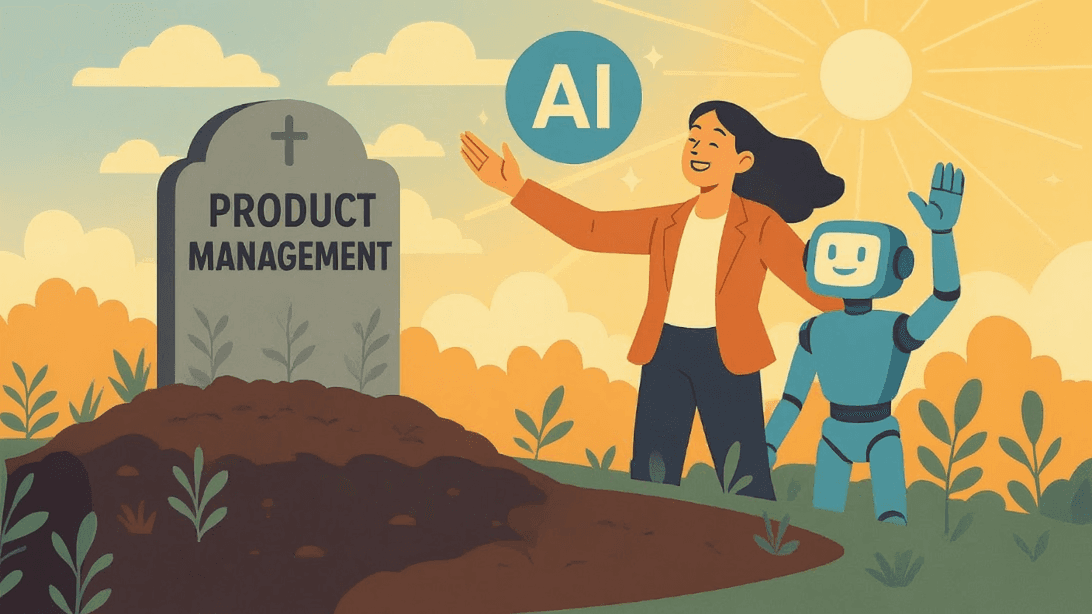
Tuesday, June 17, 2025•3 min read
The PM Role is Dead—Long Live the PM: How AI Killed the Old Job and Created a Better One
Product management isn't dead—but the job as we once knew it certainly is. AI hasn't replaced product managers; instead, it has radically reshaped what it means to be one. Our recent research at Perspective AI, involving PMs from major companies like Microsoft, Adobe, and LinkedIn, provides insight into this profound transformation.
How AI Killed the Old PM Role
Historically, product managers spent significant time on tactical responsibilities such as:
- Writing detailed specifications
- Routine data collection and basic analysis
- Managing and tracking project tasks
- Preparing repetitive reports and updates
AI technology has rapidly taken over these responsibilities, effectively ending the traditional PM role that revolved around operational oversight and administrative work.
A Product Manager at DocuSign summarized it clearly:
"The tasks I spent most of my time on—like gathering updates and conducting basic analysis—are now almost entirely automated. My role is fundamentally different now."
Strategic Elevation of PMs
As tactical duties fade away, product managers face what we're calling the "strategic elevation imperative." PMs are now expected to perform at a higher strategic level, addressing core business and market questions rather than managing task-level execution.
This shift is both exciting and challenging:
- Exciting, because it frees PMs from repetitive tasks and elevates their influence.
- Challenging, because it demands greater strategic acumen and accountability.
Embracing the Role of AI Orchestrator
The modern PM is no longer merely managing products—they're orchestrating AI-powered processes and workflows. Successful PMs today are effectively:
- Delegating research and analysis tasks to AI
- Critically evaluating and interpreting AI outputs
- Integrating AI-driven insights into product strategy and decision-making
An experienced PM at Adobe noted:
"AI tools are like super-efficient junior PMs. They do the groundwork, and my job is to integrate and refine those insights into strategic decisions."
Building Human-Centric Skills
As AI increasingly handles analytical and tactical tasks, PMs must double down on uniquely human skills that AI can't easily replicate:
- Empathy: Deep understanding of user and stakeholder needs
- Judgment: The ability to navigate nuanced, context-dependent decisions
- Taste: An intuitive sense of what makes a product feel right and resonate with users
These human-centric skills aren't just advantageous—they've become essential to the PM role.
The Future of Product Management
The future PM is a strategic orchestrator, balancing AI capabilities with human intuition and empathy. The role is shifting from managing tasks to shaping strategic vision and delivering compelling user experiences.
The traditional, tactical PM role might be gone—but in its place is emerging a role that's far more impactful, influential, and human-centered.
Product management isn't dead—it's being reborn.
Curious about the details of this transformation?